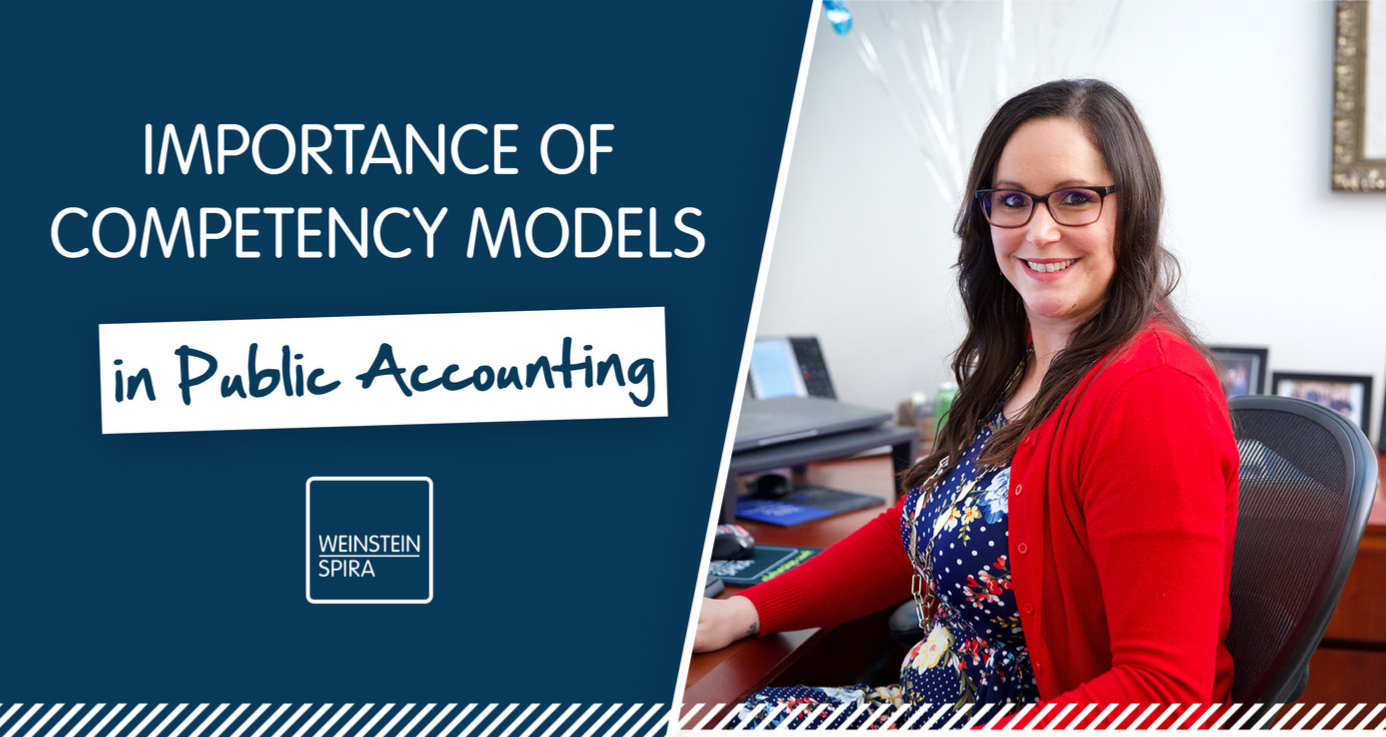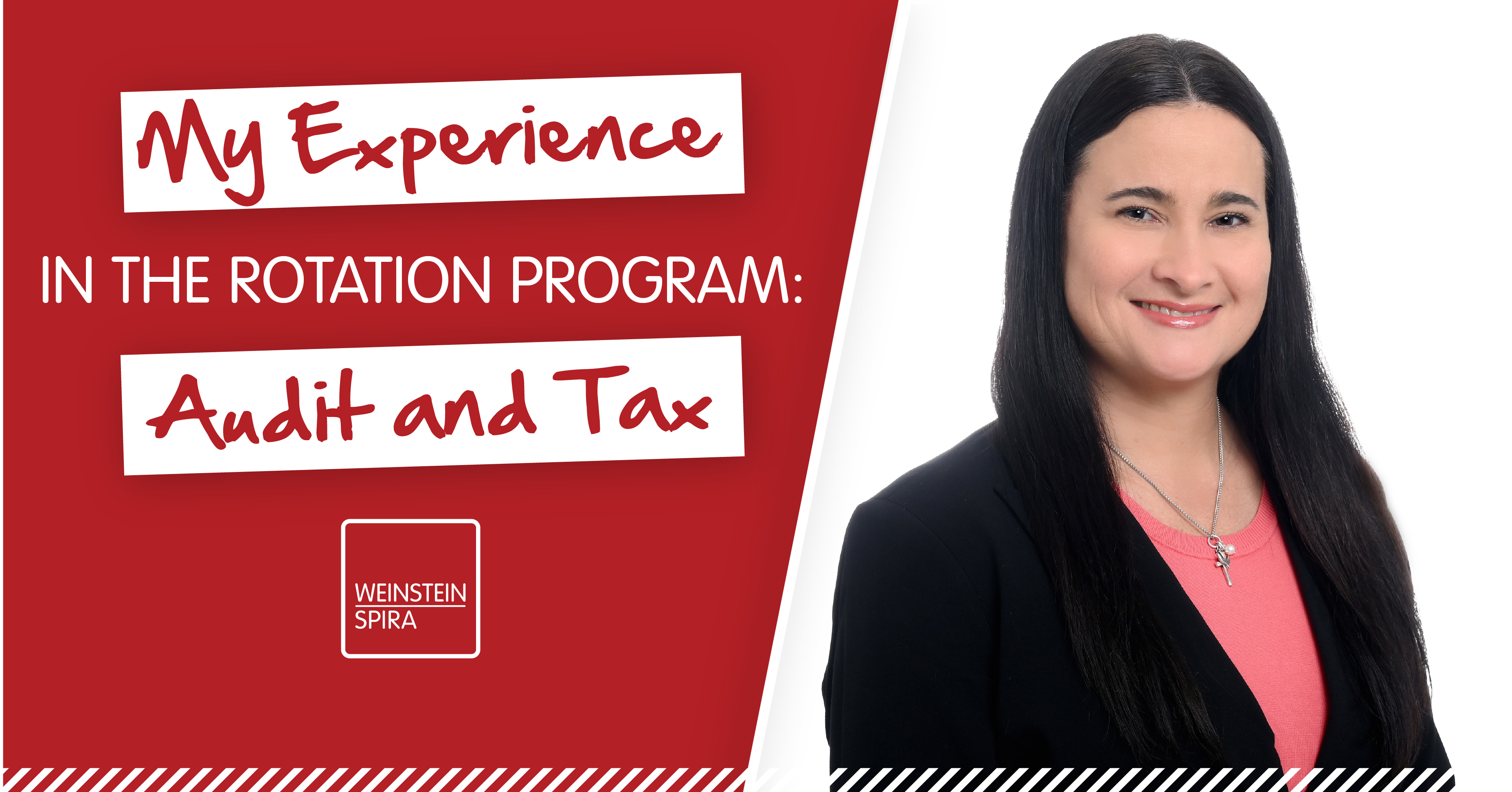Weinstein Spira’s Culture of Ownership Committee was created with the primary goal of accelerating and supporting our people’s growth and potential. The Committee was recently tasked with establishing a competency roadmap for each department (audit, tax and administrative) to align the path of the firm with the career paths of each of its employees. In this blog, I share with you why competency models are beneficial to public accounting firms for setting expectations, assessing performance, assisting with recruiting, talent management and performance-based compensation.
Setting Expectations
Competency models provide a clear set of expectations to each member of an organization. As a result, the team member can focus their behaviors and skills on what matters most to the organization. A model also helps people successfully advance their careers and provides a clear distinction between what is expected at each level. This allows employees to not only be aware of what is expected at their current level but also what is expected to get to the next level. In other words, the model describes “great” performance at each level. A competency model is an essential resource for a long-term career in public accounting where there are distinct changes in expectations as one progresses to higher levels of accountability and responsibility in the profession.
Performance Evaluations
Another primary purpose of a competency model is to provide a resource to the leaders to measure the performance of their employees. It is essential to align the competencies set out in the model with the competencies being used to evaluate employees. By aligning the competencies, this supports effective giving and receiving of feedback between evaluators and those being evaluated. Feedback can support an employee’s advancement by providing clear direction on areas for improvement and identifying performance goals on how to achieve that improvement. Some common examples of competencies for public accounting firms include communication, teamwork and ownership.
Recruitment
An important aspect of the recruitment process is ensuring that job descriptions for new hire candidates are well-defined and align with the competencies that are expected of the job. A competency model provides a framework that clarifies the expectations of the job position for potential employees. It also provides a way for candidates to understand the culture of the organization. In addition, it can be a resource in the interviewing process to enable the interviewer to ask specific questions to screen for relevant skills of candidates to hire the best person for the position. Public accounting firms are always actively recruiting and seeking new talent and a competency model can help identify employees that will have the skills and abilities to be successful.
Want to learn more about life at Weinstein Spira? Learn More!
Talent Management
Organizations should always be forward looking to identify a clear path for succession planning. A competency model can be utilized in establishing a talent management plan. The plan along with the competency model will align the development of people with the business and overall strategic goals. Given that public accounting firms are led by a group of partners or shareholders, developing the next generation of leaders is essential.
Performance-Based Compensation
A well-established competency model can be directly linked to performance-based compensation. By identifying and communicating clear performance expectations at each level, an organization can assign compensation to specific competencies within the model as an incentive to motivate its employees. You can also tie certain performance measures to different types of compensation such as salary, bonuses, or promotions.
The most important part of establishing a competency model is providing education on how it should be integrated and utilized in practice. The benefits of a competency model are endless for employees and stakeholders and ultimately, the public accounting firm!



